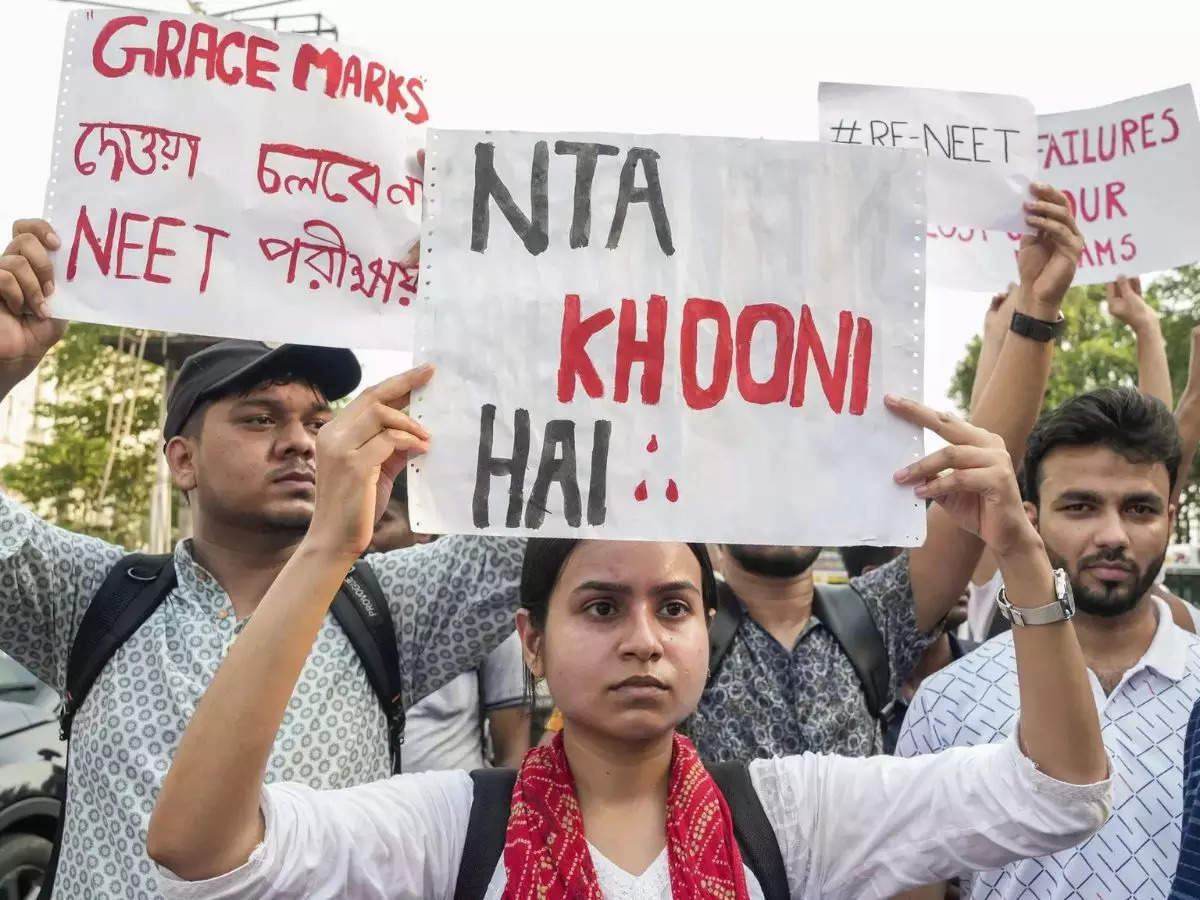The Congress party has initiated a series of nationwide protests to address the growing controversy surrounding the National Eligibility cum Entrance Test (NEET). These protests come in response to widespread concerns about the exam’s fairness, accessibility, and the impact of recent policy changes on students from diverse backgrounds. The party aims to highlight and resolve several key issues associated with NEET, advocating for a more equitable and inclusive examination process.
Key Issues Highlighted by Congress
- Language Barrier: NEET has been criticized for favoring students proficient in English, which disadvantages those who are more comfortable with regional languages. This issue has sparked calls for the inclusion of more regional language options in the exam to ensure all students have an equal opportunity to perform well.
- Urban-Rural Divide: The disparity between urban and rural students is a significant concern. Students from rural areas often lack access to quality coaching and educational resources, putting them at a disadvantage compared to their urban counterparts. Congress aims to address this divide by advocating for policies that level the playing field.
- Recent Policy Changes: Amendments to the NEET exam structure and eligibility criteria have been controversial, with many arguing that they disproportionately affect underprivileged students. Congress is calling for a review and revision of these changes to ensure they do not exacerbate existing inequalities in the education system.
- Reservation Policies: The implementation and allocation of reservation quotas in NEET have been contentious issues. Congress is pushing for fair and transparent application of these policies to ensure that all deserving students benefit from them.
- Mental Health and Stress: The intense competition and high stakes associated with NEET have led to increased stress and mental health issues among students. The protests will also focus on the need for better support systems and less stressful examination processes.
Congress’ Protest Plans
The Congress party’s protests will be organized at both state and national levels, with rallies, sit-ins, and public meetings planned across various cities and towns. Senior Congress leaders, including prominent figures such as Rahul Gandhi and Priyanka Gandhi Vadra, along with student organizations, are expected to participate actively, voicing their concerns and demands.
Key Demands of the Protests
- Reforms for Inclusivity and Fairness: Congress is demanding reforms to make NEET more inclusive and fair for all students, regardless of their language proficiency or socioeconomic background. This includes providing more regional language options and ensuring equal access to educational resources.
- Review of Policy Changes: The party is calling for a thorough review and revision of recent policy changes to NEET. They argue that these changes should not disproportionately affect underprivileged students and should be designed to promote equity.
- Enhanced Support for Mental Health: Congress is advocating for improved support systems for students’ mental health and well-being. They emphasize the need for less stressful examination processes and more accessible mental health resources for students.
- Fair Implementation of Reservation Policies: The protests also focus on ensuring fair and transparent implementation of reservation policies. Congress aims to address perceived imbalances and advocate for a more equitable distribution of opportunities.
Impact and Reactions
The Congress party’s decision to hold nationwide protests reflects its commitment to addressing the grievances of students and parents affected by the NEET controversy. These protests are expected to put significant pressure on the central government to reconsider its policies and make necessary reforms.
Public Support and Mobilization: The protests are anticipated to draw substantial support from various stakeholders, including student organizations, educators, and parents, who share concerns about the current state of the NEET examination and its impact on students’ futures. This widespread mobilization underscores the urgency and importance of the issues at hand.
Government Response: The central government has yet to issue a detailed response to the protests. However, the growing momentum of the movement may prompt policymakers to engage in dialogue with Congress and other stakeholders to address the highlighted concerns.
Political Implications: The NEET controversy and the ensuing protests could have significant political ramifications. By positioning itself as a champion of students’ rights and educational equity, Congress may strengthen its support base among young voters and their families. The outcome of these protests could also influence public opinion and policy decisions related to NEET and broader educational reforms in India.
Conclusion
The Congress party’s nationwide protests over the NEET controversy represent a pivotal moment in the ongoing debate about educational equity and fairness in India. By addressing key issues such as language barriers, the urban-rural divide, recent policy changes, reservation policies, and student mental health, Congress aims to push for meaningful reforms that ensure a fairer and more inclusive examination system. The success of these protests could have lasting impacts on the future of education in India, shaping policies that better serve all students, regardless of their background or circumstances.



